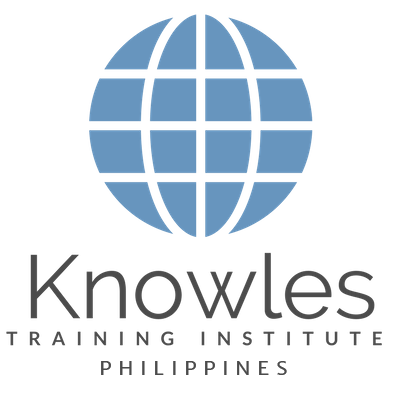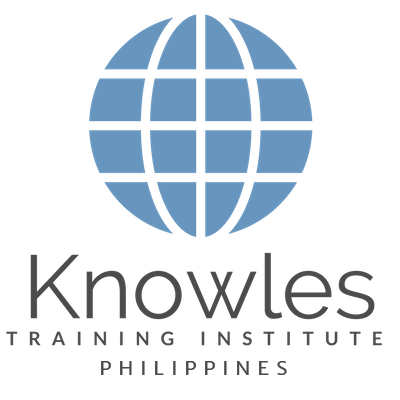Records Management Auditing Training Course in the Philippines
Our training course “Records Management Auditing Training Course in the Philippines ” is available in Manila, Quezon City, Makati, Pasig, Taguig, Cebu City, Davao City, Bacolod, Baguio, Iloilo City, Cagayan de Oro, Zamboanga City, Dumaguete, General Santos, and Legazpi City.
Conducting records management audits is crucial for assessing compliance and efficiency. The Records Management Auditing Training Course in the Philippines provides participants with the skills needed to conduct thorough audits of records management practices. This course is ideal for professionals involved in evaluating and improving records management systems.
Participants will learn how to plan, execute, and report on records management audits, including data analysis and compliance assessment. The course covers techniques for identifying strengths and weaknesses in records management practices, helping organisations to enhance their efficiency and adherence to regulations.
The course includes interactive elements and case studies to help participants apply auditing techniques to real-world scenarios. Attendees will develop the skills necessary to perform effective audits and drive continuous improvement in records management practices.
By the end of the Records Management Auditing Training Course in the Philippines, participants will be adept at conducting records management audits and improving organisational practices. This course is a valuable resource for professionals looking to enhance their auditing capabilities and contribute to effective records management.
Who Should Attend this Records Management Auditing Training Course in the Philippines
Effective auditing of records management practices is essential for ensuring compliance and efficiency. The Introduction to Records Management Auditing Training Course in the Philippines provides participants with the skills needed to conduct thorough records management audits. This course covers essential topics such as audit planning, data analysis, and reporting.
Participants will learn how to assess records management systems and practices, identify areas for improvement, and ensure that organisational policies are being followed. The course equips professionals with the tools to conduct audits that support compliance and enhance records management practices.
The Introduction to Records Management Auditing Training Course in the Philippines is an excellent resource for those responsible for auditing records management systems. It provides the knowledge necessary to conduct effective and insightful records management audits.
- Records Auditors
- Compliance Officers
- Internal Auditors
- Records Managers
- Quality Assurance Specialists
Course Duration for Records Management Auditing Training Course in the Philippines
The Records Management Auditing Training Course in the Philippines is available in various formats to accommodate different schedules. You can choose from an in-depth three-day course, a focused one-day session, a half-day workshop, a concise 90-minute overview, or a brief 60-minute introduction. These options ensure that you can select the duration that best fits your needs for learning about records management auditing.
- 2 Full Days
- 9 a.m to 5 p.m
Course Benefits of Records Management Auditing Training Course in the Philippines
The Introduction to Records Management Auditing Training Course in the Philippines provides critical skills for conducting thorough audits of records management practices, ensuring compliance and identifying areas for improvement within organisations.
- Enhanced understanding of records management auditing principles.
- Improved skills in conducting thorough records management audits.
- Greater ability to identify compliance gaps and areas for improvement.
- Increased efficiency in assessing records management practices.
- Better capability to implement corrective actions based on audit findings.
- Enhanced organisational transparency and accountability.
- Greater confidence in managing audit processes and reporting.
- Reduced risk of non-compliance with records management standards.
- Improved tools for documenting and tracking audit results.
- Better practices for maintaining records management compliance.
Course Objectives for Records Management Auditing Training Course in the Philippines
The Introduction to Records Management Auditing Training Course in the Philippines aims to provide participants with the skills needed to perform effective records management audits. Participants will learn to assess compliance, identify issues, and implement improvements to enhance records management practices.
- Understand the principles of records management auditing.
- Learn to conduct thorough records management audits.
- Develop skills in identifying compliance gaps.
- Enhance knowledge of implementing corrective actions.
- Explore methods for assessing records management practices.
- Improve organisational transparency through effective audits.
- Gain insights into managing audit processes and reporting.
- Increase confidence in addressing audit findings.
- Learn to document and track audit results effectively.
- Develop strategies for maintaining compliance with standards.
- Support organisational improvement through audit findings.
- Enhance ability to implement audit recommendations.
Course Content for Records Management Auditing Training Course in the Philippines
The Records Management Auditing Training Course in the Philippines focuses on the essential skills and techniques needed for conducting effective audits of records management systems. This course covers auditing methodologies, compliance assessment, and strategies for improving records management practices based on audit findings. Participants will learn how to ensure that records management systems meet regulatory requirements and organisational standards.
- Introduction to Records Management Auditing
- Overview of records management auditing and its importance
- Key principles and objectives of conducting records management audits
- Historical development and evolution of audit practices in records management
- Audit Methodologies and Techniques
- Techniques for planning and conducting records management audits
- Common methodologies used in auditing records management systems
- Tools and resources for effective auditing
- Compliance Assessment and Regulatory Requirements
- Understanding regulatory requirements for records management audits
- Assessing compliance with legal and organisational standards
- Identifying areas of noncompliance and developing corrective actions
- Conducting Records Management System Audits
- Steps for auditing records management systems, including system documentation and performance evaluation
- Techniques for reviewing records management practices and processes
- Best practices for conducting thorough and objective audits
- Reporting Audit Findings
- Preparing detailed audit reports and documenting findings
- Key components of effective audit reports, including recommendations and action plans
- Communicating audit results to stakeholders and management
- Implementing Improvements Based on Audit Findings
- Strategies for implementing changes and improvements based on audit results
- Developing and tracking action plans to address identified issues
- Monitoring the effectiveness of implemented changes and making further adjustments as needed
- Data Security and Privacy in Audits
- Ensuring data security and privacy during the audit process
- Strategies for handling sensitive information and maintaining confidentiality
- Addressing data security breaches and privacy concerns
- Enhancing Efficiency through Auditing
- Benefits of conducting regular audits on records management practices
- Strategies for improving efficiency and effectiveness based on audit findings
- Case studies of organisations that have enhanced efficiency through effective auditing
- Mitigating Risks in Records Management Auditing
- Identifying potential risks and challenges associated with records management audits
- Developing strategies to mitigate auditrelated risks
- Legal implications of audit findings and how to address them
- Trends and Innovations in Records Management Auditing
- Overview of current trends and innovations in auditing records management
- Introduction to new tools and technologies for auditing practices
- Evaluating the impact of technological advancements on audit processes
- Training and Capacity Building for Auditors
- Developing training programs for records management auditors
- Strategies for building capacity and improving skills in auditing
- Evaluating the effectiveness of auditor training initiatives and making improvements
- Regulatory Requirements and Compliance
- Understanding legal and regulatory requirements for government records
- Strategies for ensuring compliance with records management regulations
- Addressing compliance issues and implementing corrective actions
Course Fees for Records Management Auditing Training Course in the Philippines
For the Records Management Auditing Training Course in the Philippines, four distinct pricing options are available to suit various budgets and training requirements. Each option provides a different level of detail and duration. To find out more about the fees and select the most suitable option, please contact us for additional information.
- USD 679.97 For a 60-minute Lunch Talk Session.
- USD 289.97 For a Half Day Course Per Participant.
- USD 439.97 For a 1 Day Course Per Participant.
- USD 589.97 For a 2 Day Course Per Participant.
- Discounts available for more than 2 participants.
Upcoming Course and Course Brochure Download for Records Management Auditing Training Course in the Philippines
To stay informed about updates or to request brochures for the Records Management Auditing Training Course in the Philippines, please get in touch with us. We provide the latest information and resources to help you with your training decision. Contact us to receive updates and brochures for this essential course.


